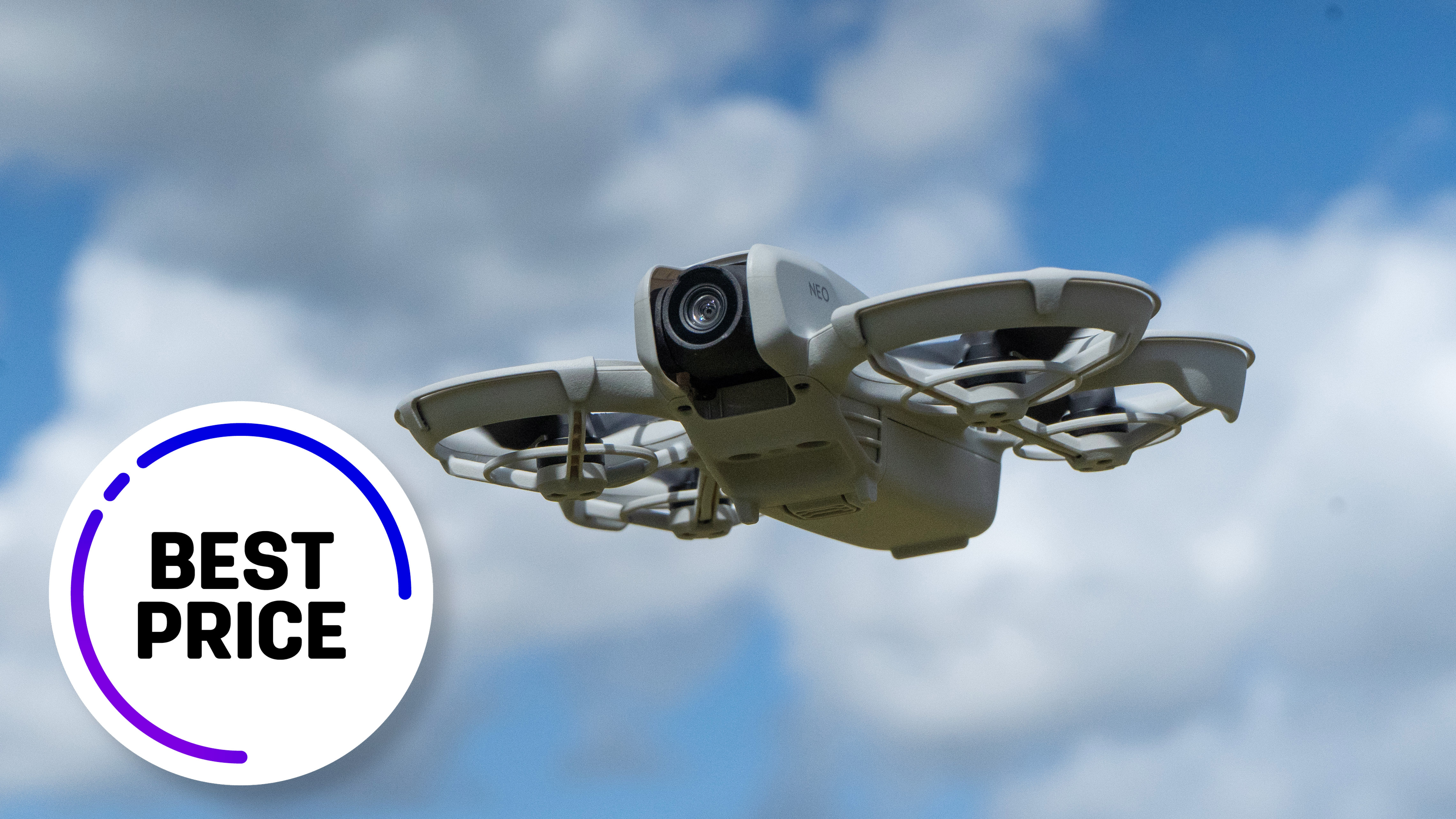Digital Camera World Verdict
I like to travel light when I’m shooting on location and the Manfrotto 5001B-1 Nano Light Stand is appealingly lightweight and compact when folded. It works well but the maximum load rating and tallest operating height are less than generous.
Pros
- +
Very lightweight
- +
Short and slim when packed
- +
Reasonable maximum height
Cons
- -
Only 1.5kg capacity
- -
Most stands go taller
Why you can trust Digital Camera World
In the field of tripods and other photographic supports, Manfrotto is one of the biggest names in the business. And it’s been that way as long as most of us can remember. From the company’s current line-up of lighting stands, the Manfrotto 5001B-1 Nano Light Stand sets out to achieve a specific purpose.
It aspires to a modest but fairly useful maximum operating height, while folding down to a smaller size than most competing light stands, as well as being rather more lightweight. The upshot is that it’s ideal for carrying around when you need to use studio flash or LED light panels on location, saving the chore of lugging big, hefty stands around with you.
As such, it gives a viable, portable alternative to some of the best light stands, while catering to some of the best photography lighting kits and the best LED light panels.
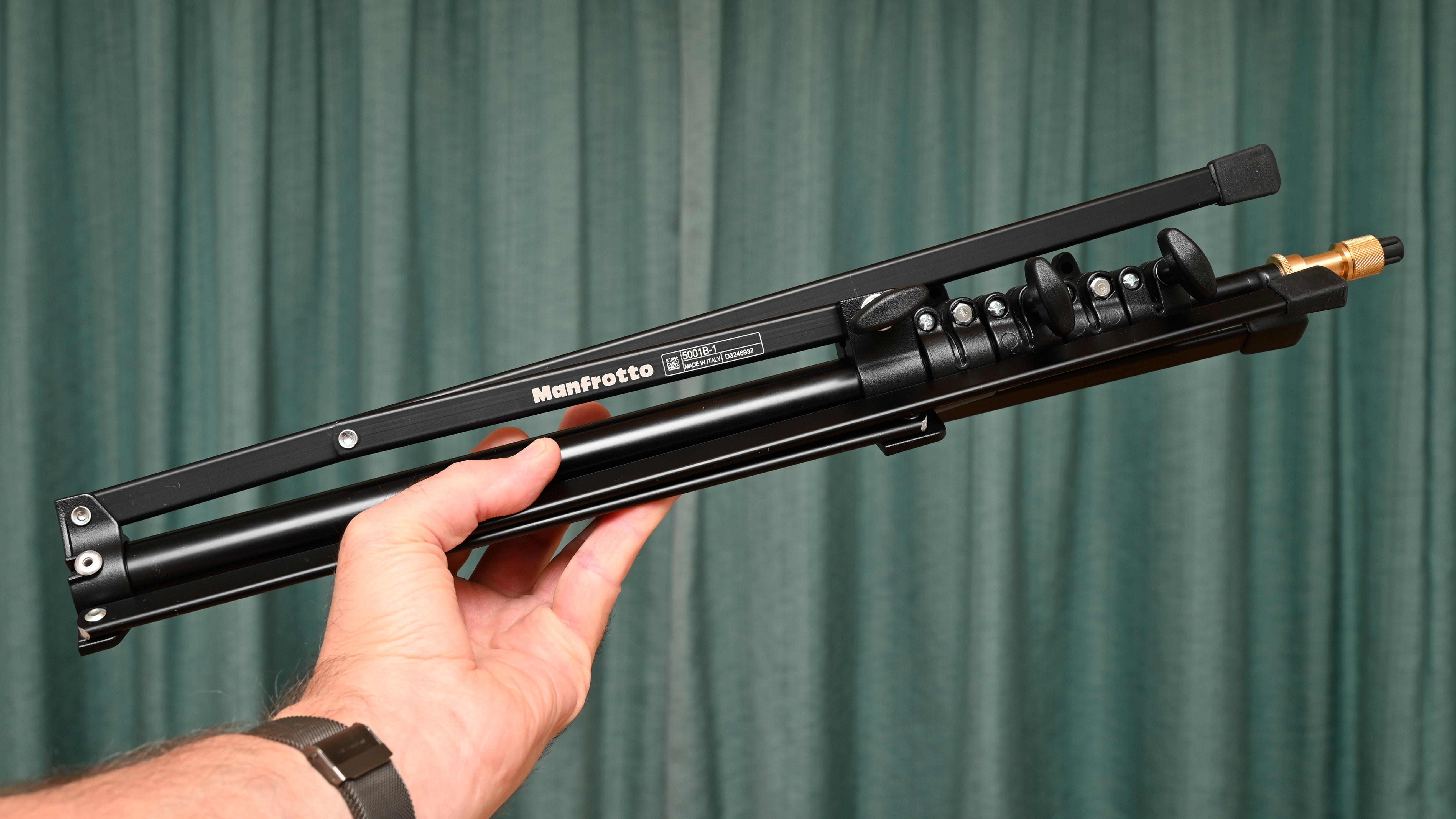
Manfrotto Nano Light Stand: Specifications
| Max height | 190cm / 6.2' |
| Min height | 49cm / 1.6' |
| Load capacity | 1.5kg / 3.3lb |
| Weight | 1kg / 2.2lb |
| Top mount | 5/8" receiver, 3/8” & 1/4" screw |
Manfrotto Nano Light Stand: Price
Compared with many mainstream light stands, the Manfrotto 5001B-1 Nano Light Stand is quite a pricey affair. It retails for around $89/£69. You could argue that you’re paying for the name to some extent, and the dependability that the Manfrotto brand inspires, but this light stand has more moving parts than many competitors and I feel that, all things considered, it sells for a fair price.
Manfrotto Nano Light Stand: Design & Handling
How do you make something tall but small? Think about tripods rather than lighting stands and you’ve probably already jumped to the right conclusion. Whereas most competing light stands have three telescopic sections in their main columns, the Manfrotto 5001B-1 Nano Light Stand has five.
This in itself enables it to fold down small while still achieving a fairly respectable maximum operating height of 190 cm / 6.2'. That’s still a bit on the short side for shooting portraits of particularly tall people when they’re standing up but should suffice most of the time.
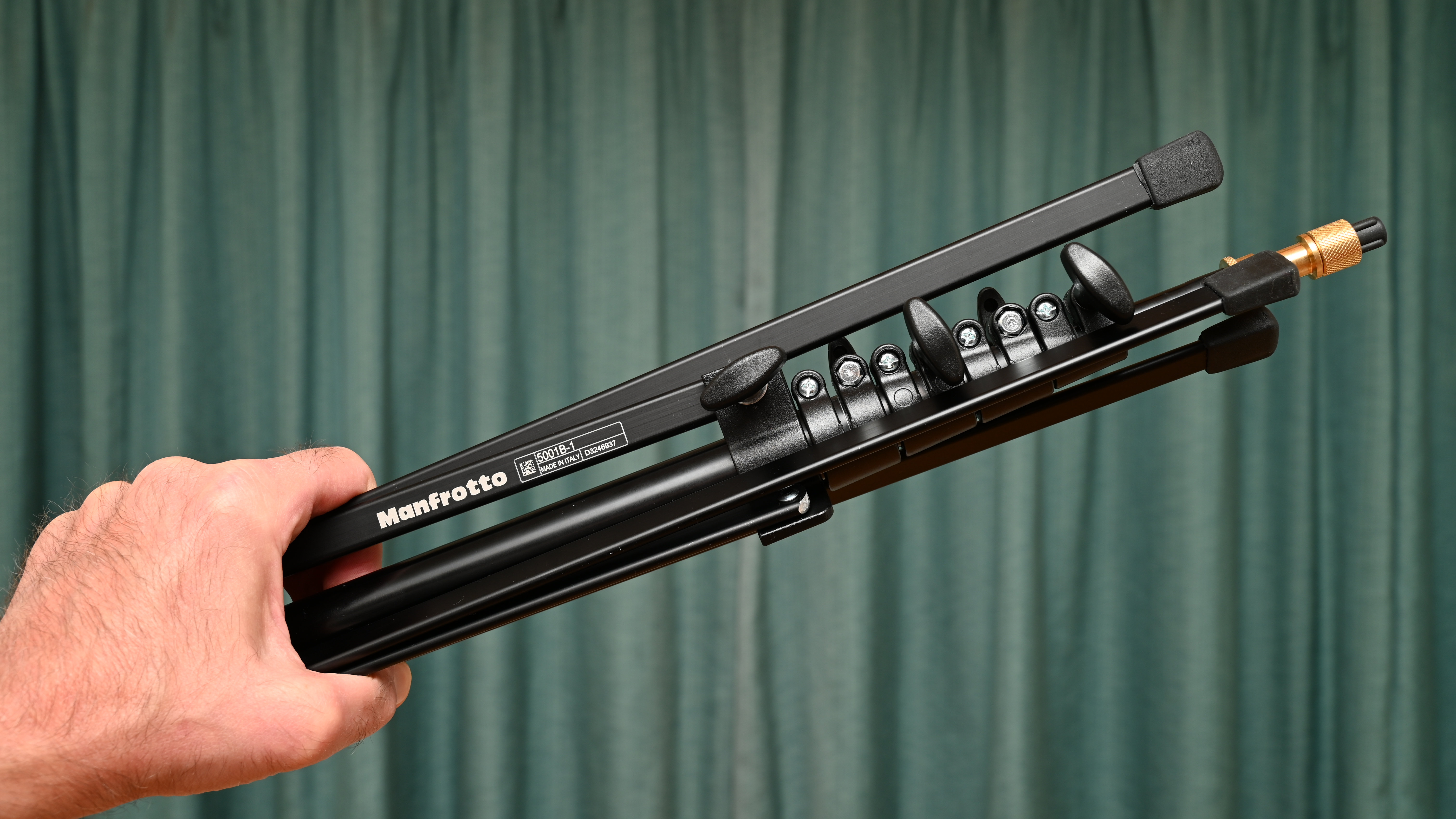
Another upside (if I can call it that) of the 5-section column is that the stand can work at lower levels than most when you want to use studio flash or LED light panels at a smaller height. Indeed, this stand can be used at a height of just 49cm / 1.6'.
That’s not only ideal for low-level main lighting but also means that you can use the stand effectively for a backdrop light positioned behind the main subject, as it’ll generally be sufficiently low down to be out of the image frame. That’s a plus point for versatility.
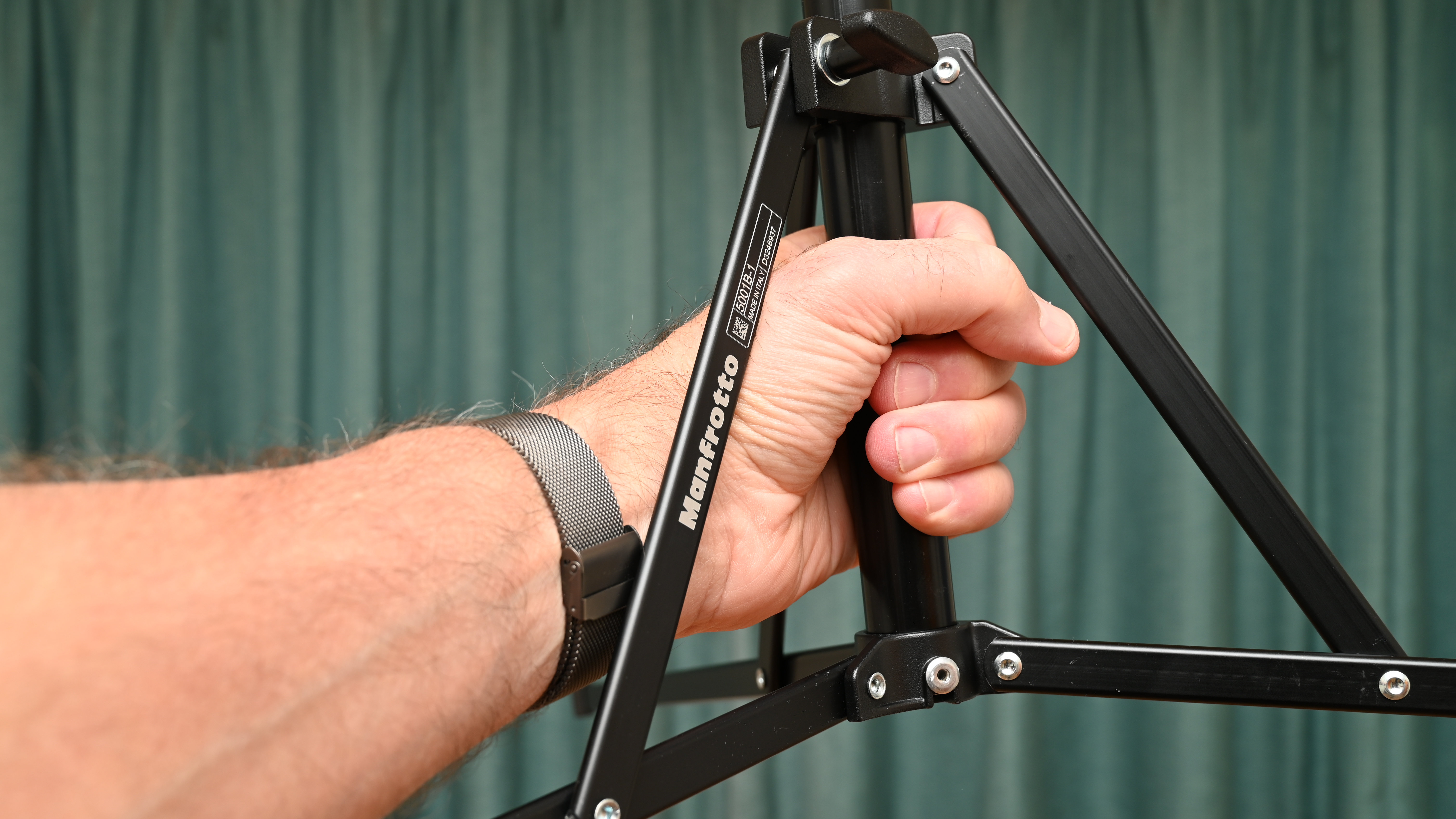
The other main factor in space-saving is that, whereas most light stands have fold-out legs, the ones in this Manfrotto swing upwards for greater compactness when stowed. Again, it’s a similar arrangement to that used in the vast majority of recent ‘travel tripods’. The three legs themselves are made from flat, solid sections of aluminum rather than from chunkier tubular sections.
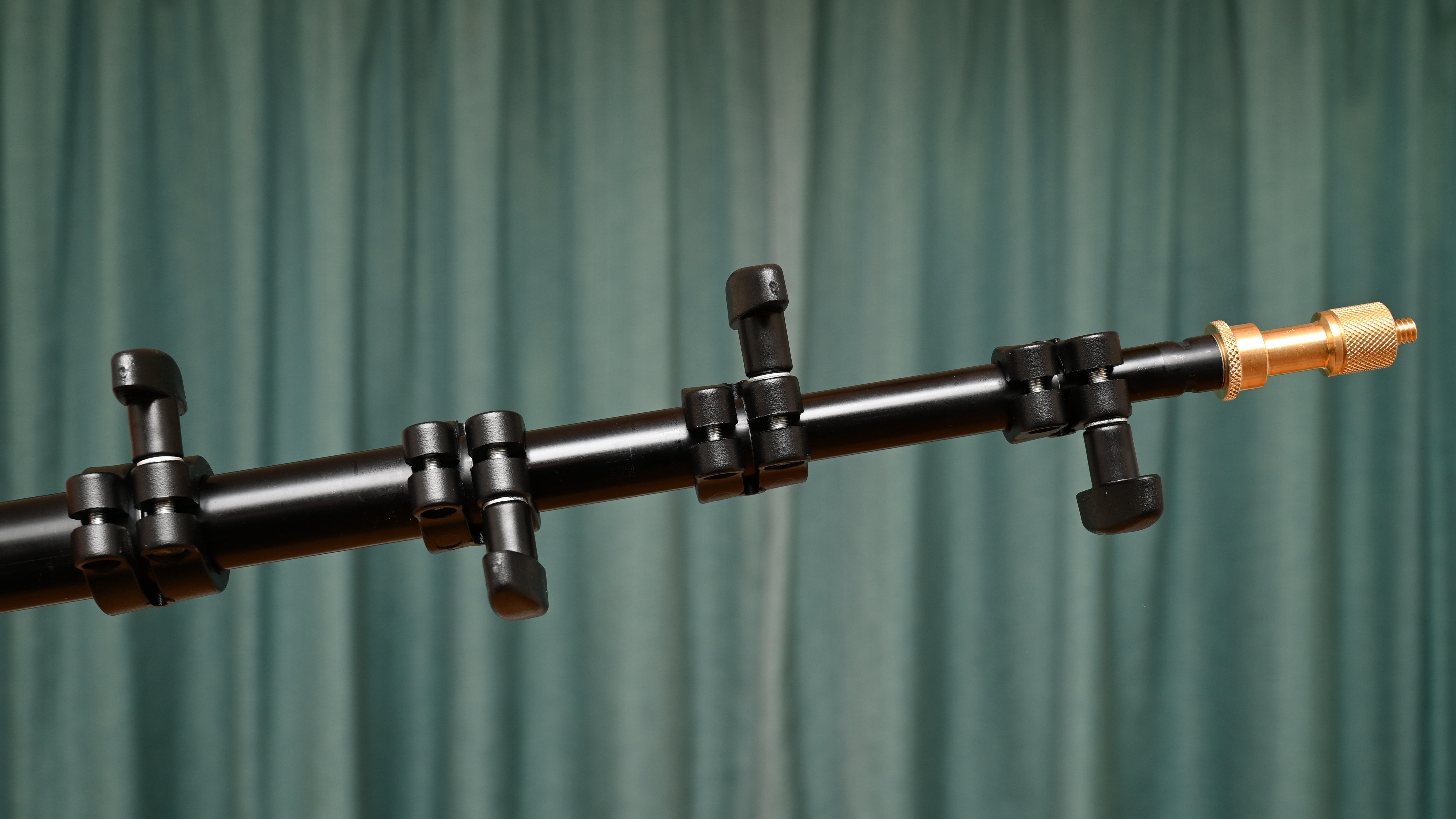
While compactness might be key for many, there are cons as well as pros. Again, by comparison to most other lighting stands, the base section takes slightly longer to fold out. Then there are no less than four clamps involved to loosen and lock the five sections of the central column.
Not only is that double the number of clamps to contend with, but each clamp has a screw-action mechanism with a T-handle, and the same goes for the base section. Each of the five clamps in total takes more time and effort than using quick-action, clip-lock clamps.
Suffice it to say there’s a lot of twiddling to be done, loosening and tightening all the clamps of this light stand.
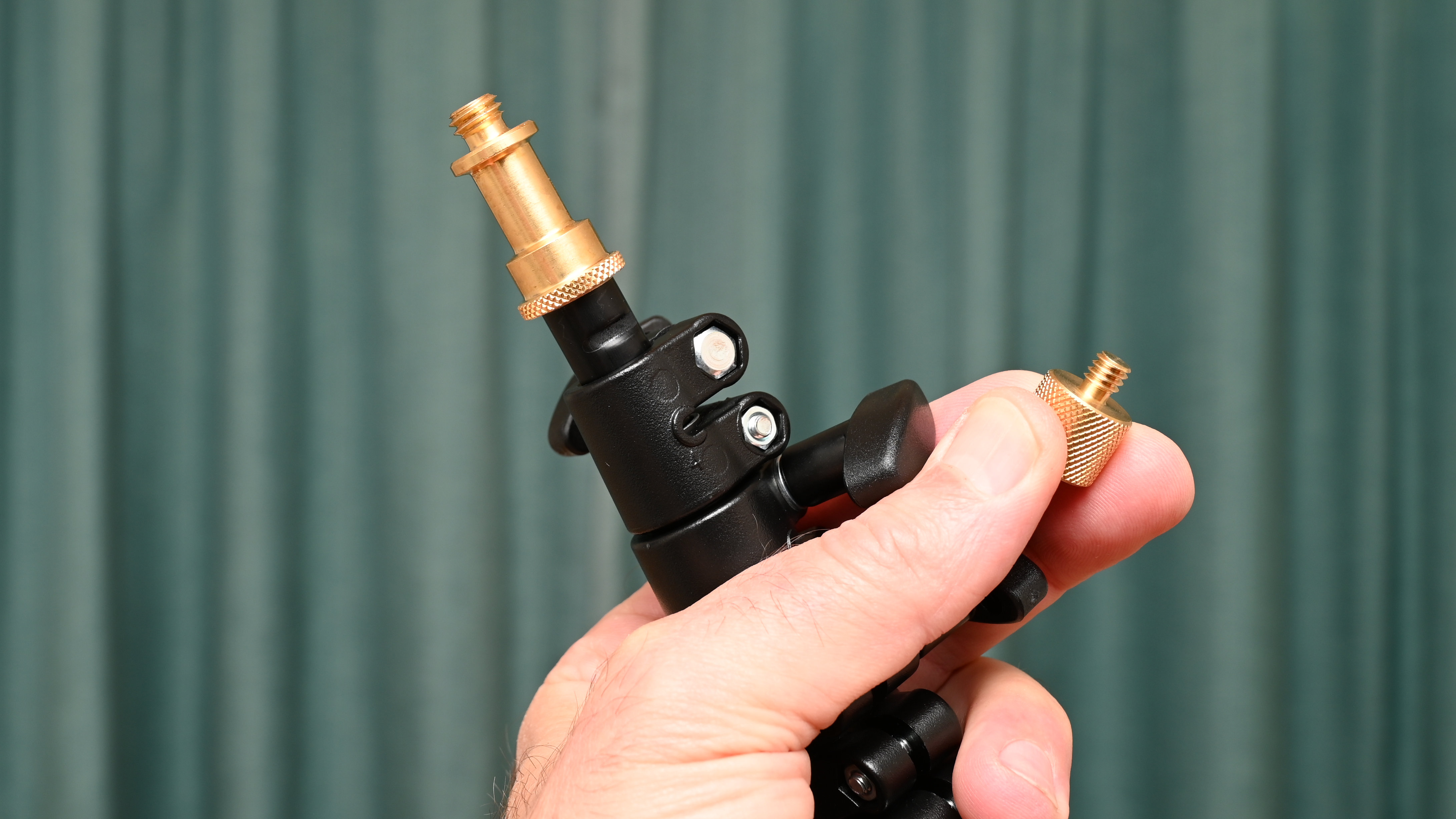
Manfrotto Nano Light Stand: Performance
I tested the Manfrotto 5001B-1 Nano Light Stand with an Elinchrom D-Lite 2 flash head fitted with a wide-angle reflector, which weighs in at 1.3kg / 2.9lb, and a Neewer NL660S LED light panel, loaded with two rechargeable battery packs, weighing 2kg / 4.4lb.
That’s quite a big ask, considering that the maximum payload rating of the stand is just 1kg / 2.2lb. Even so, I found that the Manfrotto was able to reliably support either my flash head or my LED panel, at its full operating height.
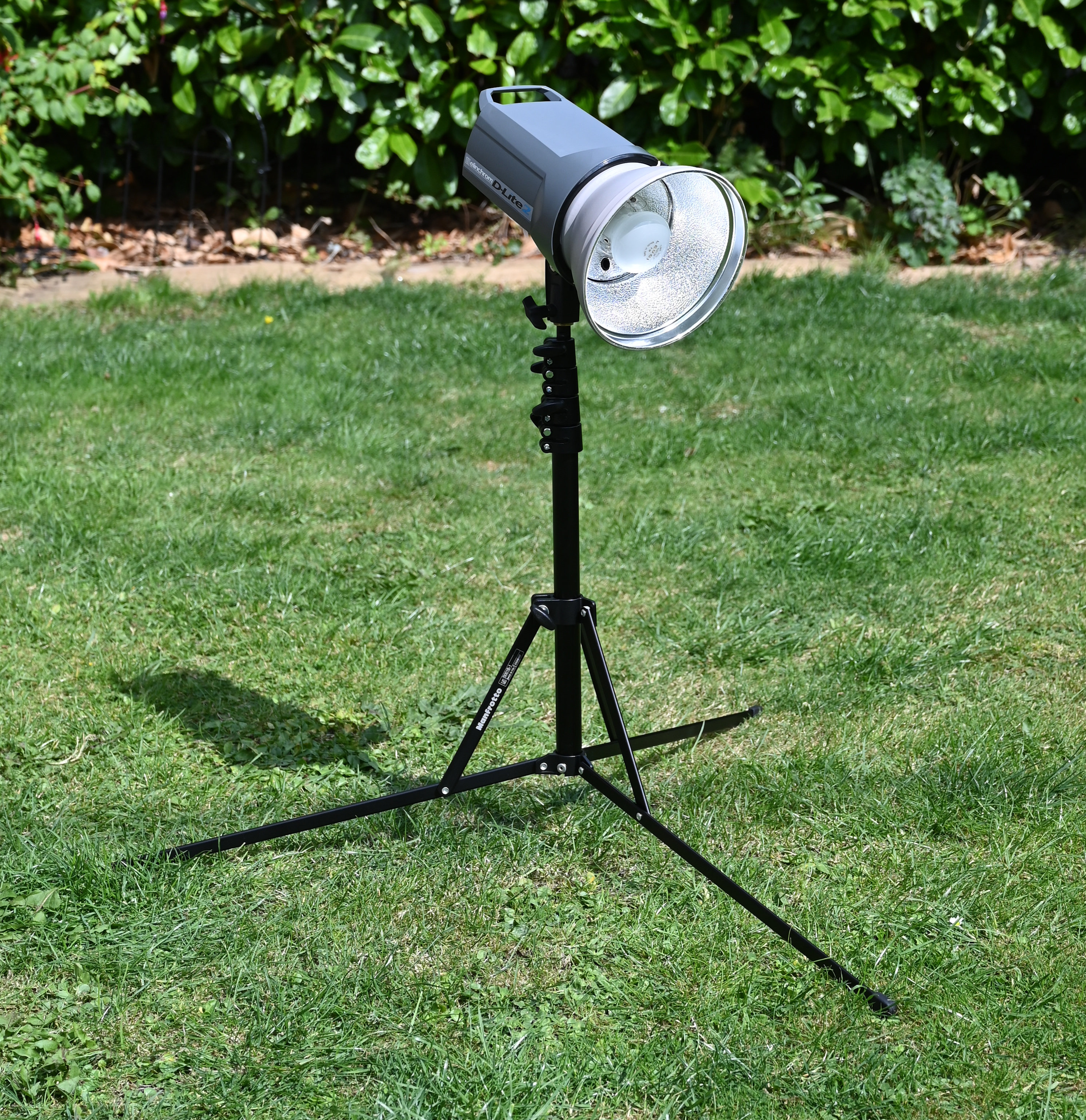
Each of the three leg sections measures about 48cm / 19" in length. Due to the unusual design of the legs compared with most light stands, you can fold them out so they’re completely horizontal, therefore giving a good maximum spread for enhanced added stability.
The column sections start off with a fairly chunky diameter at the bottom, but shrink to quite a spindly measurement at the top, with diameters of 25/22/19/16/13mm as you work your way upwards. When extending all five sections for maximum operating height, the stand feels a little flimsy and prone to wobbling but still bears a decent load and there’s no hint of sagging in any of the joints.
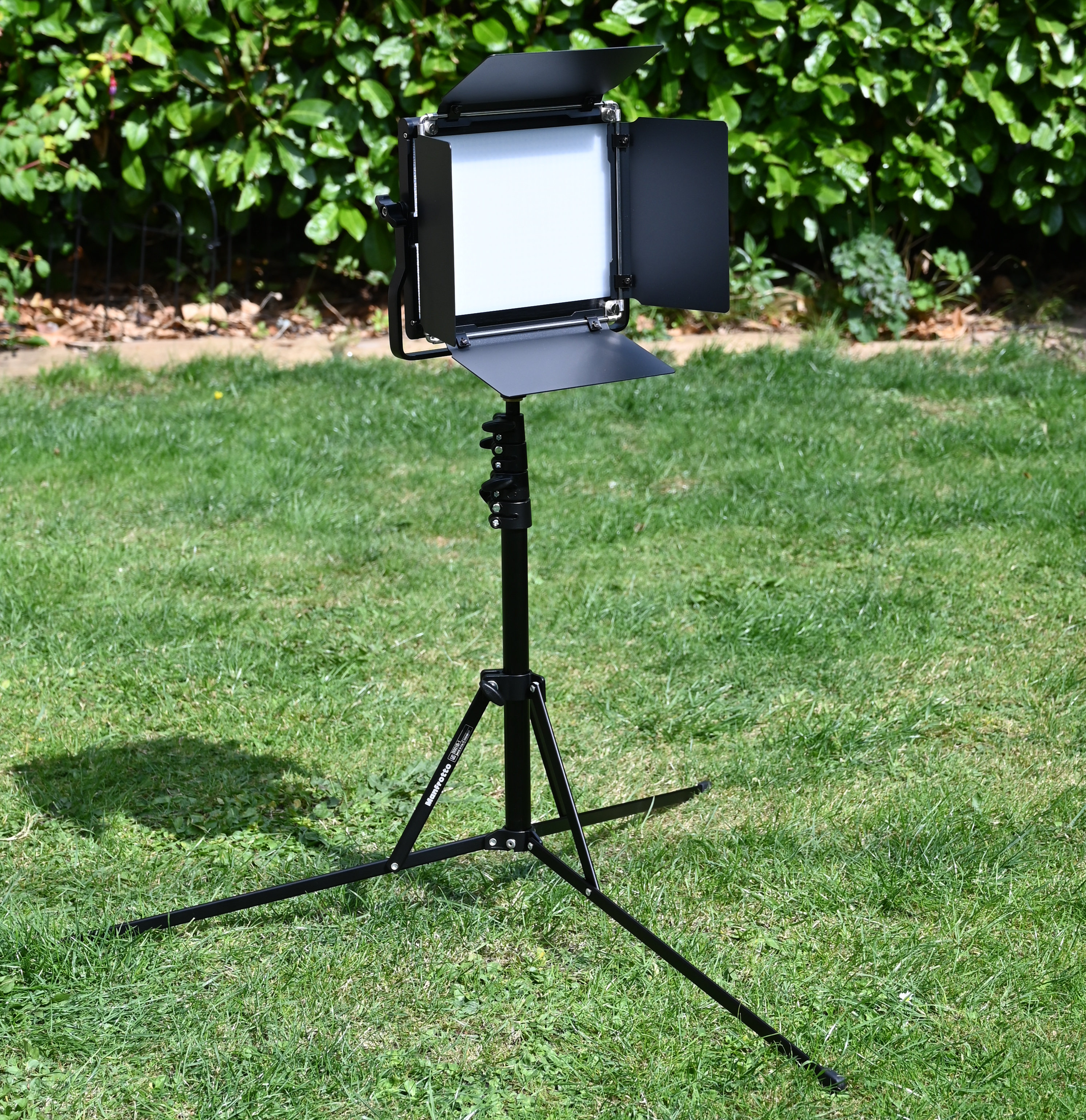
Manfrotto Nano Light Stand: Verdict
Due to its modest maximum height of 190cm / 6.2', I feel the Manfrotto 5001B-1 Nano Light Stand isn’t the ideal solution for shooting portraits of tall people when standing. Apart from that, however, it does a good job and comes into its own when I want the option of low-level lighting, down to a height of 49cm / 1.6'. The main attraction is that it’s relatively light in weight and folds down particularly small for a light stand, making it a good travelling companion for location shoots. As far as I’m concerned, it’s one for the road, rather than for the home or studio.
| Features | There’s a decent set of features, right up to the ¼-inch threaded brass socket on the mount. | ★★★★☆ |
| Design | The design enables a reasonable maximum height from a very compact and lightweight stand. | ★★★★☆ |
| Performance | It’s mostly quite rigid but a bit wobbly at full height and setup is comparatively time-consuming. | ★★★★☆ |
| Value | The Manfrotto is pretty pricey for a mainstream light stand but worth the money if compactness is key. | ★★★★☆ |
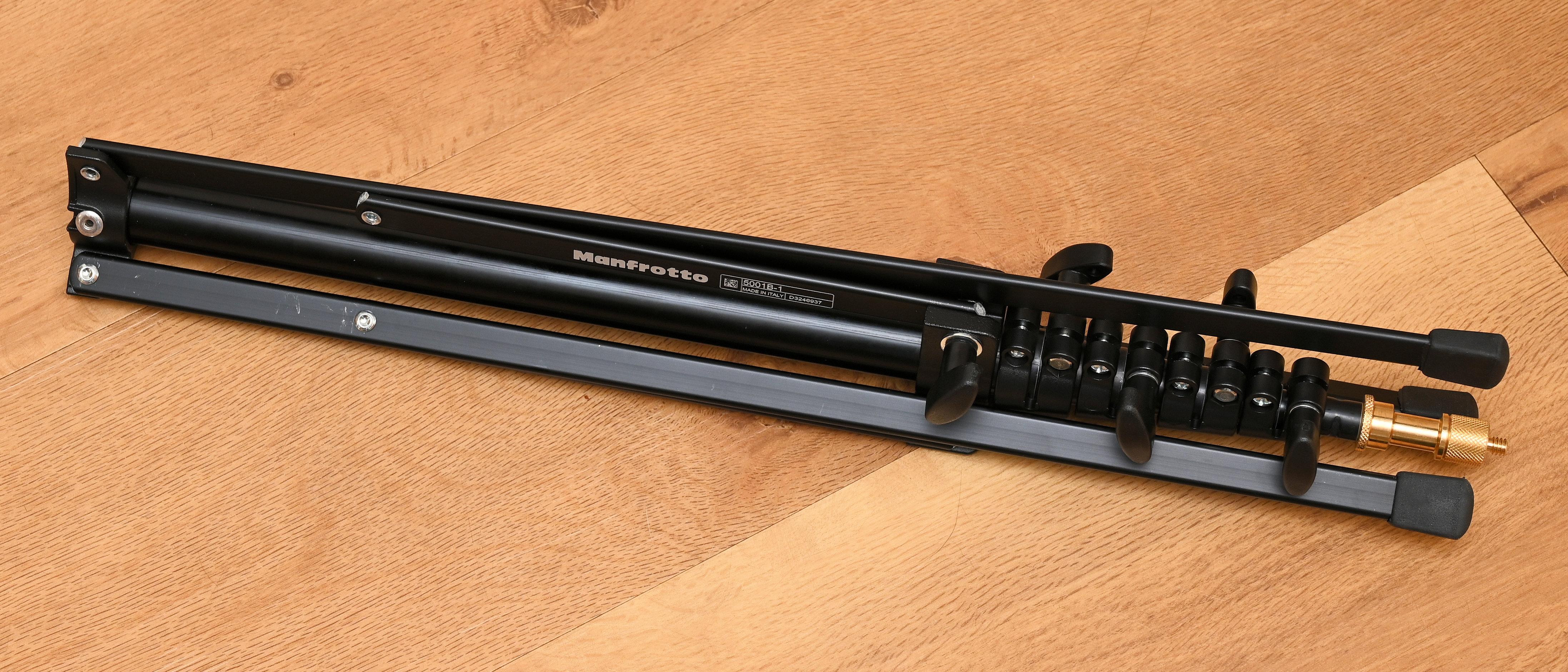
Should you buy the Manfrotto 5001B-1 Nano Light Stand?
✅ Buy this...
- You need a decent height light stand that folds down particularly small and is easy to carry around.
- You like the lightweight build and won’t need to use a stand for particularly heavy flash heads or LED panels.
🚫 Don't buy this...
- You feel that wrestling with five T-handles to set up the stand and fold it down is too much of a chore. Most light stands are quicker and easier to use.
- You want a light stand that stretches to taller operating heights, more ideal for shooting portraits of people standing up.
Matthew Richards is a photographer and journalist who has spent years using and reviewing all manner of photo gear. He is Digital Camera World's principal lens reviewer – and has tested more primes and zooms than most people have had hot dinners!
His expertise with equipment doesn’t end there, though. He is also an encyclopedia when it comes to all manner of cameras, camera holsters and bags, flashguns, tripods and heads, printers, papers and inks, and just about anything imaging-related.
In an earlier life he was a broadcast engineer at the BBC, as well as a former editor of PC Guide.

